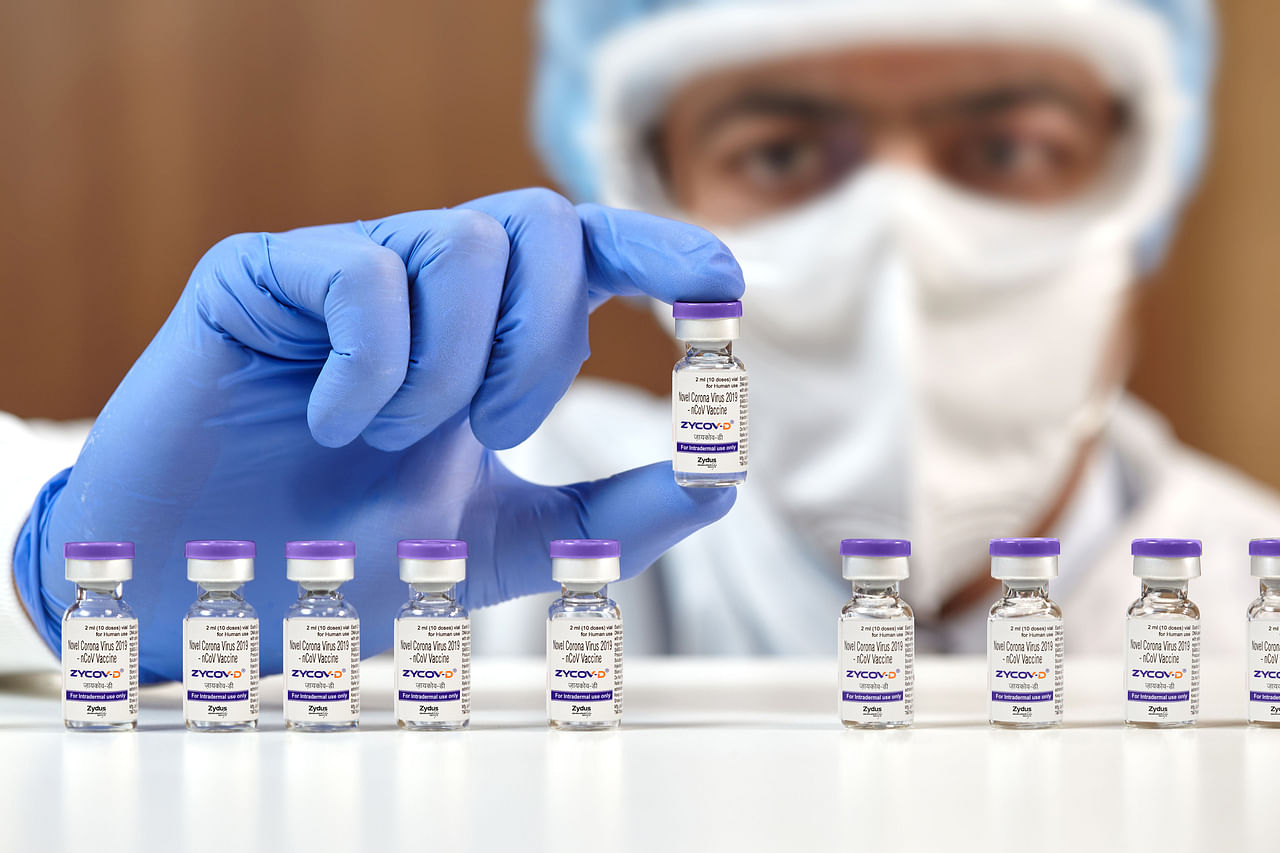NEW DELHI - Covid-19 vaccine exports from India - home to the world's largest vaccine-manufacturing industry - are gathering pace amid concerns over the spread of the Omicron variant of the coronavirus.
Bharat Biotech announced on Monday (Nov 29) that it had delivered long-pending export orders of its vaccine, Covaxin, in November, three days after the Serum Institute of India (SII) resumed international supply of its Covishield vaccine meant for distribution to low and middle-income countries via the Covax Facility, an international vaccine-sharing programme.
The Omicron variant was first identified in November in southern Africa, whose population remains largely unvaccinated.
The Indian government in a media statement on Monday also stressed that it was ready to support African countries affected by the Omicron variant, including through supplies of vaccines manufactured in India.
"Any new requirement projected either bilaterally or through Covax will be considered expeditiously," said the statement from the Ministry of External Affairs (MEA).
The ministry also disclosed that India had cleared all orders placed so far through Covax for supplies of Covishield vaccines, including to African countries such as Malawi, Ethiopia, Zambia, Mozambique, Guinea and Lesotho, as well as Covaxin supplies to Botswana.
International shipments of vaccines from India were halted in April this year during the deadly second wave that rattled the country.
Exports were allowed to resume only in September, following significant progress in the domestic vaccination programme and a large build-up of stocks at home.
India currently has more than 247 million surplus doses of Covid-19 vaccines, and around 46 per cent of its eligible adult population have been fully vaccinated.
Official figures published by the MEA show the country has exported 4.4 million doses as at Nov 22 since international shipments began in October.
India has so far supplied more than 25 million doses of vaccines produced domestically to 41 African countries, including nearly a million as grants to 16 countries and more than 16 million under the Covax Facility to 33 countries.
Recently, India also approved the export of 20 million doses of SII's Novavax vaccine to Indonesia. Called Covovax by its Indian manufacturer, the vaccine has received emergency-use authorisation in Indonesia but not in India.
The monthly production of India's two key vaccines - Covishield and Covaxin, which have been authorised for domestic use only on those above the age of 18 - is expected to cross 300 million doses in December.
At current rates of daily doses administered - 7.5 million for the period between Nov 20 and 26 - this is more than what India requires in a month.
There is now limited demand for these vaccines, with more than 83 per cent of the eligible population vaccinated with at least one dose.
Moreover, with future demand driven largely by the scheduled second dose, Indian authorities are capable of anticipating any rise in demand for vaccines.
While there have been growing calls for a third booster dose, the government has not announced any policy on this yet.
It has remained focused instead on jabbing the unvaccinated and fully vaccinating others, including through special drives targeting low-coverage areas.
Furthermore, there are new vaccines in the pipeline. An additional 20 million doses of Zydus Cadila's ZyCoV-D are expected by the end of the year, and new vaccines such as Biological E's Corbevax are slated to come up for emergency-use approval in December.
How well India is able to support global vaccine distribution depends on its handling of the domestic situation. While India is currently registering a low count of daily cases - 6,990 coronavirus cases were reported on Tuesday, the lowest daily figure since May last year - a rise could add to pressure for booster shots.
"If we are able to keep cases under control, India can contribute in bridging the accessibility issue many countries face today," said Ms Nissy Solomon, a senior associate for research at the Centre for Public Policy Research.
"A collaborative approach among pharma companies, governments and regulatory agencies is crucial in sharing technical know-how and devising a global strategy to combat the pandemic," she told The Straits Times, adding that countries need to ramp up production so that exports are not hindered.

Calling for effective management of vaccinations domestically, she said: "A repeated ban on exports may create policy uncertainty and push manufacturers to set up bases outside India."
A media release issued on Nov 29 by the African Vaccine Acquisition Trust and a host of other international stakeholders stated that the majority of vaccine donations to Africa so far had been "ad hoc, provided with little notice and short shelf lives".
It called on donor countries to release doses in large volumes and in a predictable manner, besides stressing that donated doses should have a minimum 10 weeks of shelf life when they arrive at recipient countries.
Responding to a query from The Straits Times, a spokesman from vaccine alliance Gavi, which co-leads Covax, said the organisation expects volumes of vaccine exports from India to increase rapidly over the coming months. That would help protect millions through allocated doses.
"To ensure countries are able to adequately prepare, and to ease the logistical burden on countries' health systems, we continually call for predictable supply - from both manufacturers and donors - so that no dose goes to waste," the statement added.












